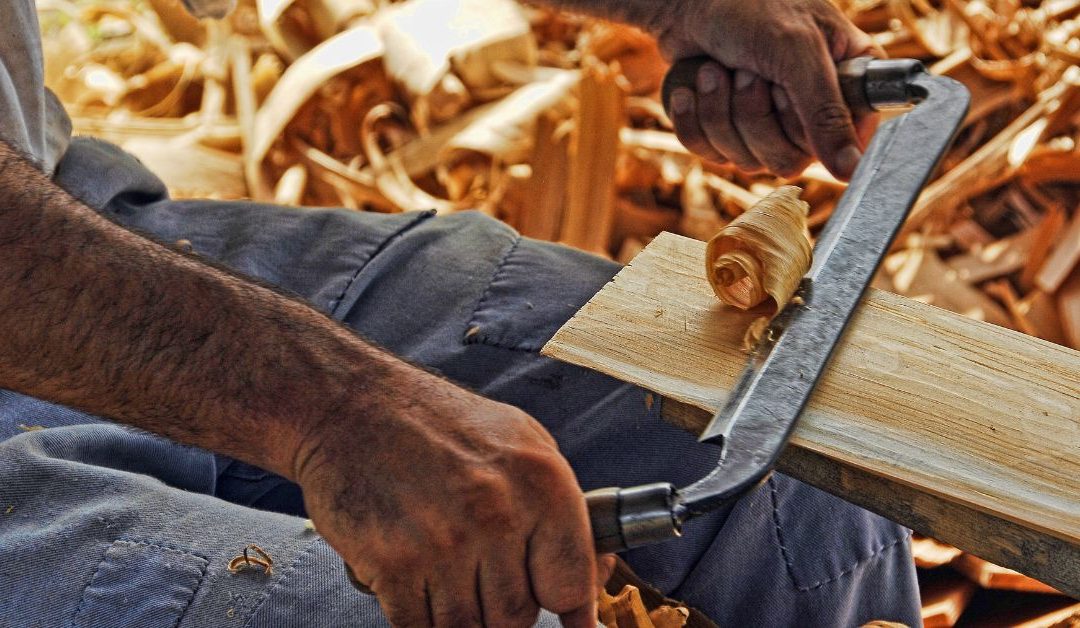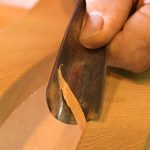Globalization has changed Moroccan woodworking in many ways. It has opened up new opportunities for woodworkers to sell their products in other countries and use different materials. But it also means more competition, so woodworkers need to improve their skills and adapt to meet international standards. They need to understand how globalization affects their craft so they can make smart choices for their future.
Overview Of Globalization
Globalization has changed Moroccan woodworking in important ways. It means that woodworkers now have more access to new technology and materials, and they can sell their products to people all around the world. This opens up new possibilities for designs and techniques. Woodworkers can also learn from others in different countries and share their ideas. To understand how globalization works is to take advantage of the opportunities it brings and do well in the global market.
Exploring The Impact Of Globalization On Moroccan Woodworking
Globalization has had a big impact on Moroccan woodworking. It brought new technologies and skilled workers, which helped improve the craft. Now, artisans can make better things and use materials from different places.
Globalization also allows people to learn from each other’s cultures. This means they can combine different styles to create unique pieces. You can see this in furniture and sculptures.
The benefits of globalization for Moroccan woodworking are great. Local artists can sell their products to people around the world, making more money. And customers in other countries can get quality items at fair prices while supporting green practices.
But, we must be careful to keep traditional skills and techniques alive. We should find a balance between embracing globalization and preserving our cultural heritage.
By doing this, we can make the most of what globalization offers while still staying true to our roots.
Understanding The Benefits Of Globalization
I’m a Moroccan woodworking expert, and I see the benefits of globalization every day.
Trade opportunities have increased and now I’m able to access resources from all over the world. This has enabled me to increase productivity and create a higher-quality product.
Plus, it’s made it easier for me to find customers and suppliers from different countries. This allowed me to learn different woodworking techniques, which increased my efficiency.
I’m thankful for the opportunities globalization has given me.
Increased Trade Opportunities
As a Moroccan woodworking expert, I’ve seen how globalization has helped our trade in amazing ways.
Now, we have more opportunities to sell our work to people outside of Morocco.
It’s exciting because other countries are getting to know our unique craftsmanship!
I love woodworking, and thanks to globalization, we can share our creations with people all around the world.
It’s something that we couldn’t do before, and I’m grateful for the chance to show everyone what we can do!
Access To Resources
With globalization, access to resources has become much easier for us. Before, we had a limited selection of materials to choose from and it was often difficult to find what we needed in our own country. Now, with international connections, we have so many more options available to us that weren’t before.
This helps ease scarcity issues as well as labor costs because there are now cheaper alternatives than ever before. It’s great being able to get the best quality products at an affordable price no matter where you live!
Not only does this make woodworking better for us but for everyone too who appreciates our work around the world.
Improved Productivity
Globalization has increased our productivity as woodworkers. Before, we had to work hard with limited resources and advanced technology was rare or expensive.
Now, there is a global investment in innovative tools and processes that make us more efficient than ever before. We can get the job done faster with higher quality results at lower costs.
Plus, businesses can reach customers from all around the world, which increases their profits. With globalization, different countries are competing to make things faster and cheaper. This means they try to come up with new ideas and inventions to stay ahead of others.
It’s a great time to be a woodworker!
Examining The Challenges Faced By Moroccan Woodworkers
Globalization has made a big impact on the woodworking industry in Morocco. It has brought both good things and challenges for woodworkers.
Thanks to social media, businesses can now reach customers from all over the world easier. This helps them compete by offering their products at lower prices. They don’t have to spend as much money on advertising or travel to other countries for trade shows.
But, there is also more competition because woodworkers from around the world can now sell their products in Morocco too. It’s harder for small businesses in Morocco to keep up because they don’t have as many resources. Some companies are using new technologies like CNC machines and 3D printers, which can make things faster and more precise. But these tools are expensive, and not all Moroccan woodworkers can afford them.
To succeed, Moroccan woodworkers need to balance traditional craftsmanship and new techniques. They need to consider what customers want and be smart about their budget.
Even though there are challenges, with the right planning and hard work, Moroccan woodworkers can still do well in the global market.
Increased Access To International Markets
Globalization has been good for Moroccan woodworking. It has helped woodworkers sell their products to people in other countries. This means more opportunities to show their amazing craftsmanship to the world!
To reach customers abroad, woodworkers can use social media and go to trade shows. These efforts helped Moroccan woodworkers sell furniture and related items to other countries.
Not only does this bring in more money, but it also helps people from different cultures learn about Moroccan artistry and appreciate it. It’s a win-win situation for everyone!
In the future, having access to materials will be important for woodworkers to keep growing and sharing their talent with the world.
Access To A Wider Variety Of Materials
Globalization has been great for Moroccan woodworking! It means they can sell their products to people in other countries. With this change, they have access to new tools and materials that make their work even better.
They have advanced machines that help them cut wood into different shapes and create intricate designs using 3D printing. This makes their work faster and more precise.
Globalization also helps them be more sustainable. They can use renewable materials like bamboo instead of hardwoods like oak or walnut. This helps protect the environment.
To keep up with international standards, woodworkers need to invest in training and quality control. They need modern facilities to make products on time and within budget.
The Need To Adapt To Meet International Standards
Globalization has changed Moroccan woodworking in many ways. To stay competitive, woodworkers have to be creative and use new technology. They learn from other countries and share their ideas too.
They use new machines to cut and finish wood, strong glues to join pieces together, and special coatings to protect their products. They explore new types of wood that come from different places.
By working together, Moroccans can make things that meet high international standards. They keep their unique style and high-quality workmanship.
Even though there are still challenges, learning from others helps them develop new ideas and keep growing in the global market.
Competition From Global Markets
Globalization has brought both good and bad changes to Moroccan woodworking. On one hand, it has made it harder for local woodworkers to compete with cheaper products from other countries. This is because big companies have invested a lot of money in those countries and can make things at lower costs. This can be challenging for smaller businesses in Morocco.
But, globalization created chances for some woodworkers to sell their products in other countries. Yet, not everyone has been able to enjoy this.
Globalization means that people from different countries can trade and do business with each other easier.
Impact Of Globalization On Local Communities
Globalization has made a big impact on Moroccan woodworking. It brings new opportunities, but also challenges. We need to find a balance between modernizing our craft and keeping our traditional techniques and skills. This means using new technology while still holding on to what makes us special.
Globalization can help us grow and give us access to more materials. But we need to make sure we don’t lose our unique way of doing things. We need to create strategies that work for our culture and environment. This will help us make the most of globalization while still keeping our traditions alive.
Strategies For Adapting To Globalization
Globalization has had a big impact on Moroccan woodworking, but we can make the most of it by being proactive and adapting to new trends. We should try different designs and materials to reach customers from around the world. It’s important to make connections with other people in the industry outside our country. By doing these things, we can stay successful while keeping our local traditions alive. Let’s embrace the changes and make the most of the opportunities that come with globalization!
Frequent-Asked Questions
How Has Globalization Affected The Cost Of Moroccan Woodworking Products?
Globalization has changed the price of Moroccan woodworking products. Some wood types have become more expensive because of trade tariffs. People now prefer new materials and styles from other countries. This has made traditional Moroccan craftsmanship less popular, so prices have gone down. But it’s a chance for us to come up with new ideas that people will like.
What Are The Long-Term Implications Of Increased Global Competition For Moroccan Woodworking?
Global competition has made things harder for Moroccan woodworkers. Other countries can make things cheaper because they have access to cheaper materials and workers. This means Moroccan woodworkers have to find ways to compete and protect their jobs.
How Has The Availability Of New Materials Changed Moroccan Woodworking Practices?
Thanks to new materials and improved tools, Moroccan woodworkers can now make things easier and with better quality. These advancements have allowed us to create amazing designs that we couldn’t make before. It’s exciting because our industry is growing and we can make beautiful artworks with precision.
How Has Globalization Changed The Traditional Skills And Techniques Used By Moroccan Woodworkers?
Over the years, I’ve seen how globalization has changed the way we do woodworking in Morocco. Technology and new ideas have come into play, challenging our traditional skills. But we can find a balance by combining our old techniques with the benefits of these new changes. This way, we can keep our craft alive while also embracing the positive things that come from the wider world.
What Strategies Can Moroccan Woodworkers Use To Remain Competitive In Global Markets?
To succeed in global markets, Moroccan woodworkers need to know what people like and use their skills to create special products. They can stay ahead by planning with care and being creative. This way, they can make popular things and make money too.
Globalization has changed the way of Moroccan woodworking. To stay competitive, woodworkers need to learn new ways of working and use different materials. But they must also remember the traditional skills that make Moroccan woodworking special. With a mix of new and old techniques, they can continue to create amazing things!







